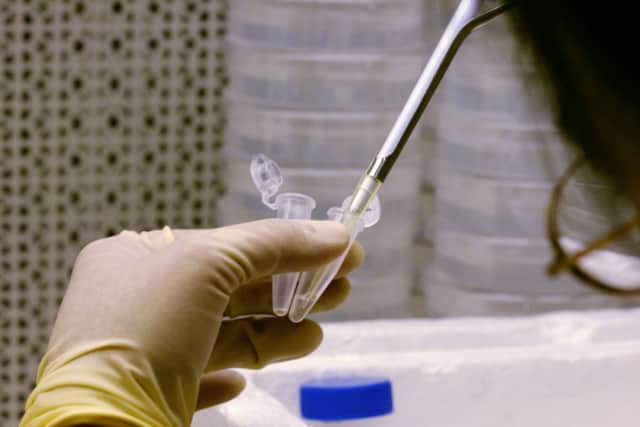Scientists discover key to ‘switching off’ MS


The researchers, who described the discovery as an “important breakthrough”, said the findings could improve the lives of millions of people around the world affected by MS, as well as other serious disorders.
It could lead to new treatments for patients with the often debilitating conditions.
Advertisement
Hide AdAdvertisement
Hide AdAutoimmune diseases occur when the body’s immune system attacks its own tissue.
In the new study, published in the journal Nature Communications and funded by the Wellcome Trust, the team from Bristol University revealed how they were able to stop cells from attacking healthy body tissue.
They discovered how cells convert from being aggressive to protecting against disease.
It is hoped the insight will lead to the widespread use of immunotherapy as treatment for many autoimmune disorders which target specific antigens – substances which cause an immune response in the body.
Conditions which could be targeted include MS, Type 1 diabetes, Graves’ disease and systemic lupus erythematosus.
Scotland is believed to have one of the highest rates of MS in the world, with 10,000 people affected. Figures produced by the Multiple Sclerosis International Federation (MSIF) show that the prevalence of MS in Scotland is 188 cases per 100,000 of the population, slightly behind Northern Ireland at 190, but higher than the 138 cases in Wales and 162 in England.
The reasons behind the high rates remain unclear, though some research has suggested a link between MS and both genetics and lack of vitamin D caused by low sunlight exposure in northern countries like Scotland. The condition affects 2.5 million people worldwide.
Professor David Wraith, from Bristol’s School of Cellular and Molecular Medicine, said the latest research was “exciting”.
Advertisement
Hide AdAdvertisement
Hide AdIn the animal-based study, scientists were able to target the cells that cause autoimmune disease by dampening down their aggression against the body’s own tissue, while converting them into cells capable of protecting against disease.
This type of conversion has previously been applied to allergies, in a treatment known as “allergic desensitisation”, but its application to autoimmune disorders has only recently been appreciated.
The researchers said that by specifically targeting the cells at fault, this approach avoided the need for drugs to suppress the immune system.
Mark O’Donnell, MS Society director for Scotland, said: “This study, although conducted in mice, offers new options for future trials that one day could lead to a low-risk treatment for people with the condition.”